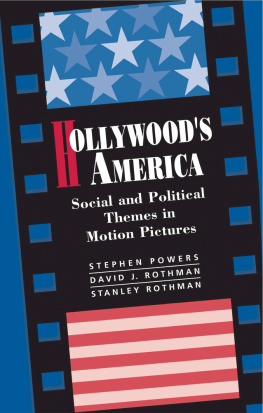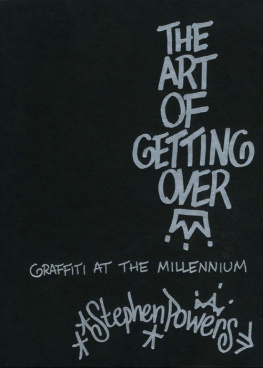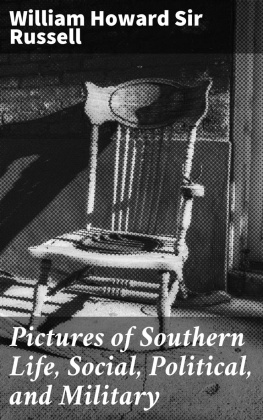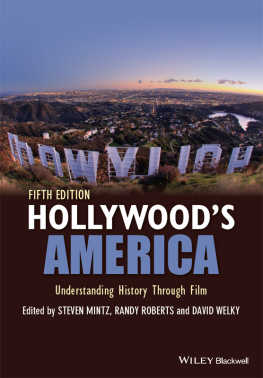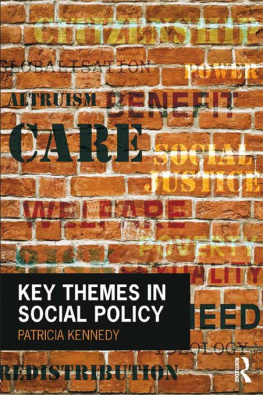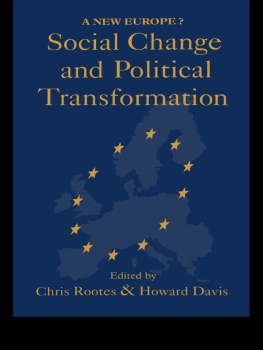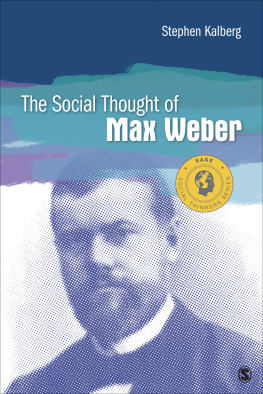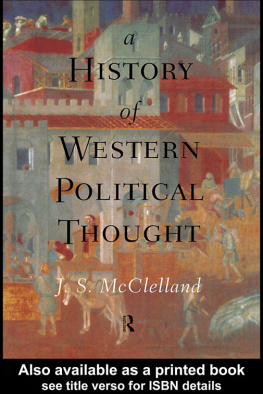First published 1996 by Westview Press
Published 2018 by Routledge
711 Third Avenue, New York, NY 10017, USA
2 Park Square, Milton Park, Abingdon, Oxon OX14 4RN
Routledge is an imprint of the Taylor & Francis Group, an informa business
Copyright 1996 Taylor & Francis
All rights reserved. No part of this book may be reprinted or reproduced or utilised in any form or by any electronic, mechanical, or other means, now known or hereafter invented, including photocopying and recording, or in any information storage or retrieval system, without permission in writing from the publishers.
Notice:
Product or corporate names may be trademarks or registered trademarks, and are used only for identification and explanation without intent to infringe.
A CIP catalog record for this book is available from the Library of Congress.
ISBN 13: 978-0-8133-2933-8 (pbk)
ISBN 13:978-0-8133-2932-1 (hbk)
This book is unique. It combines the most extensive systematic content analysis ever completed of social and political themes in motion pictures from 1946 to the present, with the most detailed study ever conducted of the political views and personalities of a random sample of leaders in the motion picture industry. The two studies are integrated with a broad historical discussion of changes in American life, as part of an effort to understand the impact of the American motion picture industry on America and the impact of trends and events in America on American motion pictures. We are thus engaged in a sociological study of the motion picture industry, a task that has been undertaken by few others, except for Marxist and neo-Marxist scholars.
The book, part of a larger study of leadership and social change in the United States directed by Stanley Rothman, is one of a series that includes volumes on television, the press, and high school history textbooks, among other subjects.
The inspiration for the studies comes in large part from political scientist Harold Lasswell and sociologist Daniel Bell, As early as in the 1950s, Lasswell maintained that the key strategic elites (leadership groups) of the twentieth century would increasingly be those concerned with the creation and distribution of symbols for either knowledge or entertainment (Lasswell and Lerner, 1952). Bell made a similar point and also sketched the impact of such elites upon American society (Bell, 1973, 1976). His argument, which we accept, is that certain key changes in American society have produced a cultural elite (broadly defined) that has become critical of bourgeois society and is contributing in important ways to transforming its social values and replacing them with new ones.
It is only recently that social scientists have begun to study these newly powerful strategic elites, at least in part because their role did not become substantially significant until the 1960s, though there were antecedents, for example, in journalism and academia. As political scientists and sociologists have begun to relate the study of various cultural elites to other elements of the political system, they have encountered other analysts from university language and literature departments with their own approach to what has come to be called "cultural studies." The cultural studies approach tends to be antithetical to that of contemporary social science, though it is beginning to influence social science as well. As of now, cultural studies dominates academic film criticism.
Social scientists assume that the interaction between ideology and social structure can be studied empirically and with reasonable objectivity, Non-Marxists also assume that such interaction is possible. They believe, as did Max Weber, that sometimes one and sometimes the other factor plays the more important causal role.
Many scholars who specialize in cultural studies seem to argue that it is impossible to understand anything but cultural representations. From their perspective, such representations are the only analytically accessible manifestations of society and should be analyzed in the same manner as literary texts. The approach of these scholars is both analytic and anecdotal. They feel little need to study a well-chosen sample of films because if American culture is dominated by a particular group, all films represent the same social reality. Of course, the more radical of these academics deny that one can uncover enduring meanings by closely examining texts.
Our book is clearly a work of social science. The major instruments used in the study, aside from standard historical and political analyses, are: (1) a massive survey of twelve leading elite groups administered by means of a complex survey instrument that tapped the social backgrounds, social and political attitudes, and key personality dynamics of various leadership groups in the United States, including the makers of motion pictures. All in all, over 1,750 respondents were interviewed; (2) a series of systematic content analyses of a random sample of top grossing motion pictures from 1946 to the present. The data we have collected is being deposited at the Roper Public Opinion Center at the University of Connecticut for use by other scholars. Making the data available contributes to public scholarly dialogue and thus to understanding.
The book begins with a detailed discussion and justification of our methodology. We explain the methods involved in completing a systematic, long-term content analysis of a representative sample of films. We then examine both the strengths and weaknesses of the approach and discuss our survey of the motion pictures' creative elite. We briefly contrast our approach with the poststructuralist film theory that dominates academic film criticism today. At the end of the book, in Appendix A, "The Poverty of Film Theory," we develop a much more detailed critique of the dominant cultural studies approach to contemporary academic film theory. We maintain that a broad sociological and empirical approach to the study of social messages in motion pictures is more likely to provide us with useful insights than a subjective, symbolic analysis that assumes that the hegemony of certain ideas is embedded in symbolic representations that are to be analyzed as literary texts.
Since we are persuaded that some of the changes that have taken place in the content of motion pictures in recent years are a function both of historical structural changes in the motion picture industry and of the attitudes of moviemakers, time that they have been examined in depth and compared with those from studies of other leadership groups. We have found that the Hollywood elite is generally more liberal than many other elites. In this book, we demonstrate that Hollywood liberalism is not necessarily the same as that of other comparable liberal groups. For the first time, too, we present the results of the Thematic Apperception Tests administered to all the groups we studied and our discovery that (not surprisingly) ideological differences among the various elite groups we studied are associated with personality differences.


